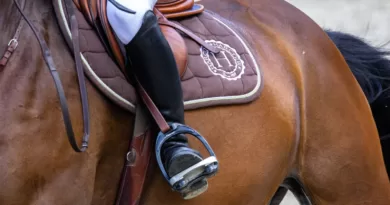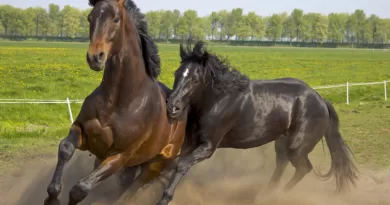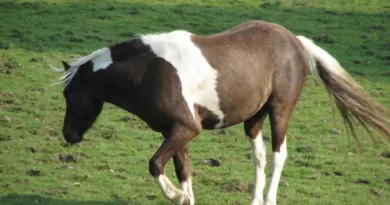Why Do Horses Paw the Ground
Understanding Horses’ Natural Behavior
Horses have long been recognized for their innate behaviors, which have evolved over centuries of living in natural environments. Understanding these natural behaviors is crucial to ensuring the well-being and proper care of these magnificent animals.
One of the fundamental aspects of a horse’s natural behavior is its herd instinct. In the wild, horses are social animals that form strong bonds within their herd. They rely on each other for protection, companionship, and navigation. This instinct is deeply ingrained in their behavior, and even domesticated horses often demonstrate a strong desire for social interaction. It is important for horse owners and handlers to provide opportunities for socialization and companionship to fulfill this aspect of their natural behavior.
The Purpose Behind Horses Pawing the Ground
When horses paw at the ground, it can serve multiple purposes. One common reason for this behavior is to search for food. In the wild, horses paw the ground to uncover grass or root up plants, making it an instinctive behavior that can still manifest in domesticated horses. This pawing can indicate that they are hungry or unsatisfied with their current feed, prompting them to search for more sustenance.
Another purpose behind horses pawing the ground is to mark their territory. By digging shallow holes or scraping the surface, they leave visible marks that act as a visual sign to other horses, warning them to stay away. This behavior is a way for horses to establish dominance and assert their ownership over their immediate surroundings. Pawing as a territorial display can be observed when horses are introduced to a new environment or during interactions with unfamiliar horses.
Exploring the Communication Aspect of Pawing
Horses are highly communicative animals, often relying on a combination of body language, vocalizations, and subtle cues to convey their intentions and emotions to other equines. One commonly observed behavior that horses use as a form of communication is pawing the ground. This action involves the horse striking its hoof against the earth repeatedly, creating a distinct sound that can be heard and felt.
Pawing is believed to serve as a means for horses to communicate various messages to their surroundings. In some cases, it can be a signal of frustration or impatience, especially when the horse is seeking attention or waiting for something. By pawing the ground, horses seem to be saying, “I am here, and I want you to notice me.” Additionally, pawing can also be observed during social interactions, such as when horses are establishing dominance or trying to influence the behavior of other herd members. Understanding the communication aspect of pawing can provide valuable insights into the rich and complex language of horses.
Pawing as a Sign of Boredom or Frustration
For some horses, pawing the ground can be a sign of boredom or frustration. When horses become bored or feel confined in their environment, they may resort to pawing as a way to release pent-up energy or express their dissatisfaction. This behavior is more commonly observed in horses that are kept in stalls or smaller enclosures, as they have limited space to move around and engage in natural behaviors.
During moments of boredom or frustration, horses may exhibit repetitive behaviors such as pawing, which can provide them with a temporary distraction. Pawing allows them to expend energy and relieve their mental and physical restlessness. However, it is important to note that excessive or repetitive pawing can lead to negative consequences, such as hoof damage or unsightly ground markings. Therefore, it is crucial for horse owners and caretakers to address the underlying causes of boredom and frustration and provide appropriate outlets for their horses to engage in natural behaviors.
Examining the Link Between Pawing and Anxiety
Horses, like any living creature, are prone to experiencing anxiety. When it comes to pawing the ground, this behavior can often be linked to the horse’s feeling of unease or nervousness. Anxiety can arise from a variety of factors, such as unfamiliar surroundings, loud noises, or even changes in routine. In these situations, horses may resort to pawing as a means of releasing built-up tension or trying to communicate their discomfort.
Pawing can be seen as a coping mechanism for horses dealing with anxiety. It can serve as a way for them to redirect their attention and temporarily alleviate their feelings of unease. By pawing the ground, horses may find a sense of control or distraction from the source of their anxiety. While it may not entirely eliminate their stress, pawing offers them a way to express their inner turmoil and cope with their emotional state. Understanding the link between pawing and anxiety can help horse owners and handlers better address and manage their horse’s needs, creating a more harmonious environment for both horse and human.
Pawing as a Response to Physical Discomfort
Horses, like any other living creatures, communicate their physical discomfort in various ways. One such way is through the behavior of pawing the ground. This repetitive motion of lifting and striking the hooves against the earth is often seen as a response to physical discomfort experienced by horses.
When a horse is in pain or discomfort, pawing can be a way for them to alleviate or distract from the discomfort they are feeling. By pawing, horses may attempt to shift their weight or adjust their posture in order to find relief. For example, a horse experiencing a sore hoof may paw in an attempt to alleviate the pain or discomfort caused by an injury or an underlying condition. Similarly, horses with gastric ulcers may paw as a result of the discomfort caused by the irritation in their stomach. In such cases, pawing serves as a visible sign that the horse is experiencing physical discomfort and requires attention and appropriate care.
The Role of Pawing in Establishing Dominance
Pawing is a natural behavior observed in horses that can serve as a means of establishing dominance within a herd. When horses paw the ground, it is often accompanied by other dominant behaviors such as head tossing, charging, and vocalizations. This assertive act can be seen as a way for horses to communicate their hierarchy and assert their social status.
In a herd, the dominant horse typically exhibits pawing behaviors more frequently than others. By forcefully striking the ground with their hooves, they can create a loud noise and visually display their power to the other members of the group. This behavior not only asserts their dominance but also serves as a warning to lower-ranking horses to yield space and respect their authority. By understanding the role that pawing plays in establishing dominance, horse owners and handlers can better comprehend the complex social dynamics within a herd and work towards maintaining a harmonious environment for their equine companions.
Uncovering the Connection Between Pawing and Hunger
Many horse owners may have noticed their horses pawing the ground during feeding time or when they are hungry. This behavior is often an indicator that the horse is experiencing hunger or anticipating a meal. Pawing the ground can be seen as a natural response to the horse’s instinctual drive to search for and consume food.
Pawing can serve as a way for horses to communicate their hunger to their human caretakers. By pawing at the ground, horses are signaling their need for sustenance and drawing attention to their desire to be fed. This behavior can be particularly common in situations where feeding schedules are inconsistent or where the horse perceives a delay in getting their regular meals.
Managing and Addressing Pawing Behaviors
Pawing behaviors in horses can be managed and addressed through various strategies. First and foremost, it is important to identify the underlying cause of the pawing behavior. This may involve observing the horse’s environment, diet, and social interactions. By understanding the root cause, horse owners and caretakers can then implement appropriate measures to address the issue.
One effective approach is providing mental and physical stimulation for the horse. Ensuring that horses have access to a suitable turnout area with ample space to move and graze can help alleviate boredom and restlessness. Engaging them in regular exercise and training sessions can also provide mental stimulation and redirect their energy. Additionally, introducing toys or puzzle feeders can keep horses occupied and prevent them from resorting to excessive pawing. By promoting a healthy and stimulating environment, it is possible to minimize pawing behaviors and enhance the overall well-being of the horse.
Promoting a Healthy Environment to Minimize Pawing
One of the key factors in promoting a healthy environment for horses is providing them with ample physical exercise and mental stimulation. Horses are highly active animals by nature, and when confined to small spaces or deprived of mental stimulation, they can become bored and frustrated. This can manifest in behaviors such as pawing the ground. To minimize pawing, it is important to ensure that horses have access to large, open areas where they can move around freely, as well as engage in activities that keep their minds occupied.
Additionally, maintaining a consistent daily routine can help reduce pawing behavior in horses. Horses thrive on routine and appreciate a structured schedule. By providing regular feeding times and adhering to a consistent exercise regimen, they are less likely to feel anxious or bored, thus minimizing the need to engage in pawing. Furthermore, ensuring that horses are fed a well-balanced diet that meets their nutritional needs can also contribute to a healthier environment and reduce the likelihood of pawing due to hunger or discomfort.
Why do horses paw the ground?
Horses paw the ground for various reasons, including communication, boredom, frustration, anxiety, physical discomfort, establishing dominance, and hunger.
Is pawing a natural behavior for horses?
Yes, pawing is a natural behavior for horses. It is a way for them to communicate and express themselves.
Can pawing be a sign of boredom or frustration in horses?
Yes, horses may paw the ground when they are bored or frustrated. It can be a way for them to release pent-up energy or express their dissatisfaction.
Is there a link between pawing and anxiety in horses?
Yes, pawing can be a sign of anxiety in horses. It may indicate that they are feeling stressed, overwhelmed, or fearful.
Can pawing be a response to physical discomfort in horses?
Yes, horses may paw the ground if they are experiencing physical discomfort. It could be a way for them to alleviate pain or discomfort in their hooves or legs.
Does pawing play a role in establishing dominance among horses?
Yes, pawing can be a part of the dominance hierarchy among horses. It may be used as a display of power or an attempt to assert dominance over other horses.
Is there a connection between pawing and hunger in horses?
Yes, horses may paw the ground when they are hungry or anticipating feeding time. It can be a way for them to express their eagerness for food.
How can pawing behaviors be managed and addressed?
Pawing behaviors can be managed and addressed through various strategies, such as providing mental and physical stimulation, ensuring a comfortable environment, addressing any underlying physical discomfort, using positive reinforcement training techniques, and providing regular meals and appropriate feeding schedules.
How can a healthy environment minimize pawing in horses?
A healthy environment can minimize pawing in horses by promoting mental and physical stimulation, providing social interaction with other horses, ensuring a comfortable and stress-free environment, addressing any underlying health issues, and maintaining a balanced and consistent feeding schedule.




